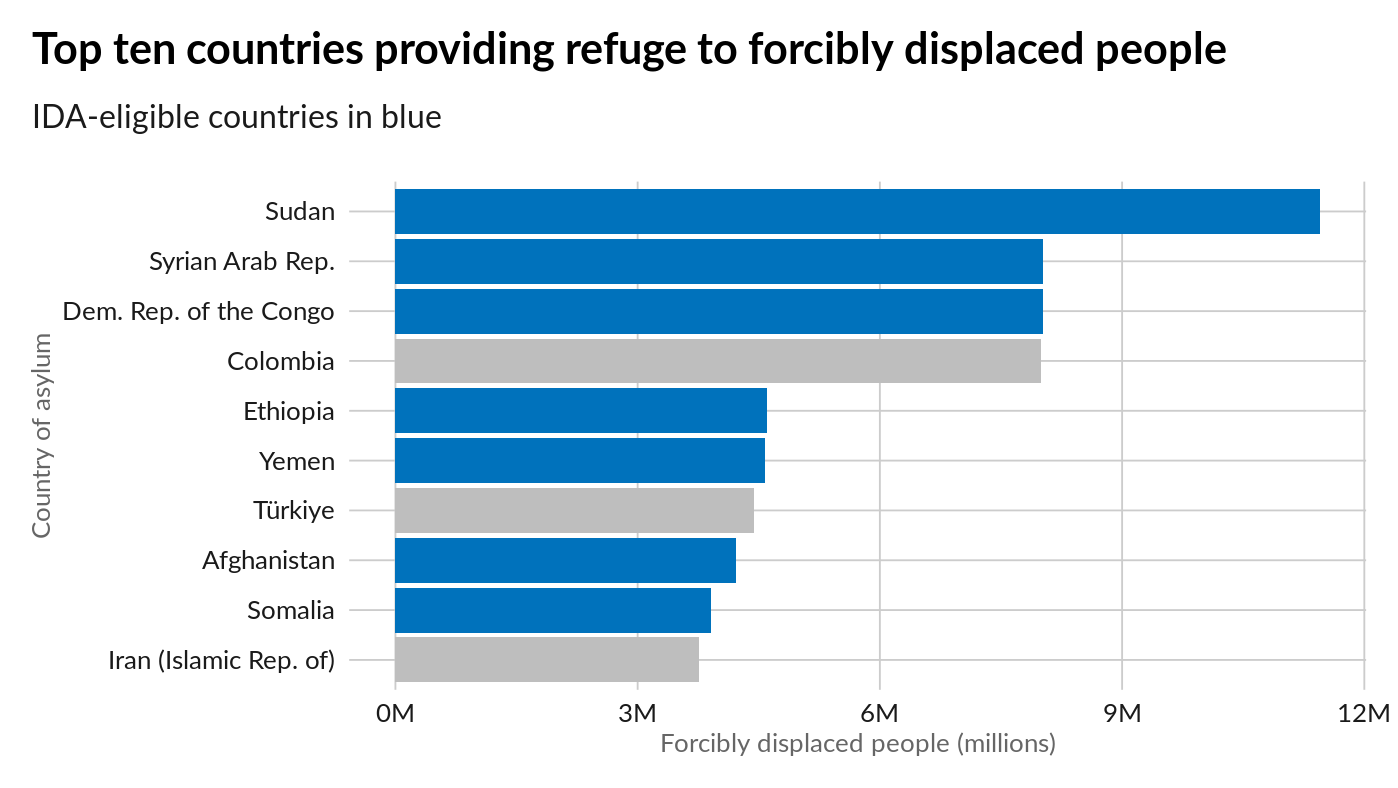Sustainable Response: Accelerating Opportunities for Inclusion
What do countries as diverse as the Democratic Republic of Congo, Myanmar, Syria and Somalia have in common? They are hosting some of the largest groups of people forced to flee in the world: a compounding factor for these countries battling polycrisis. Yet, they are also part of a longer list of countries eligible to receive resources from the World Bank’s International Development Association (IDA). As such, they can access grants and very concessional financing to promote economic development, increase productivity, and raise living standards for their citizens.
Financing provided through IDA is crucial in supporting the inclusion of refugees, IDPs and stateless people in the socioeconomic structure of the communities where they are seeking protection. At the same time, the inclusion of people forced to flee in existing national and sub-national systems is also critical for responding sustainably, as UNHCR recently articulated in its Global Appeal. This approach recognizes that conventional humanitarian responses cannot keep pace with the growing scale, complexity, and protracted nature of forced displacement. Therefore, it combines UNHCR’s goals for protection and solutions with improvements in economic opportunities, increased self-reliance and access to finance, leading to better conditions to thrive, live peacefully, and build resilience.

It is remarkable that in the current context of heightened economic uncertainty and an ever-pressing need for human development, the 21st replenishment of IDA (IDA21) has raised US$24 billion in donor contributions. This achievement will generate a total of US$100 billion in affordable financing—the largest replenishment in IDA’s history. These funds enable IDA’s engagement priorities across its five Focus Areas: People, Prosperity, Planet, Infrastructure, and Digital Transformation. This is an opportunity for moving the needle in the collaboration between humanitarian and development actors, namely on the design and implementation of plans to maximize self-reliance and minimize dependency on humanitarian aid.
Sustainable responses support the empowering of national and local governments in deploying the enormous potential of displaced communities; and identifies interventions and investments by development partners, private sector and other stakeholders with a lasting impact. To a large extent, these initiatives depend on good data and evidence. At the JDC, we have seen this firsthand: the data collections we have supported have informed some US$3 billion in development programs across ten countries. These funds originate from IDA and similar initiatives from the World Bank and other development institutions.
The evidence on the effects of socioeconomic inclusion in, for example, labor markets outcomes, social cohesion, or overall welfare is vast, and microdata are becoming increasingly available. Moreover, data tools as the newly launched Dataset of World Refugee and Asylum Policies help the analysis on how countries provide for protection and inclusion. Together, these resources support the efforts to improve protection and wellbeing of the forcibly displaced and stateless people. And the local communities affected by forced displacement.

Aissatou Maisha Dicko
Head of the World Bank-UNHCR Joint Data Center on Forced Displacement
Literature review
Our literature review delves into recent research on forced displacement in Colombia, Democratic Republic of the Congo, Hungary, Kenya, Syria, Tanzania, Turkey, and Ukraine, featuring topics such as the impacts of regularization and cash transfers, local economic development, social networks, conflicts, and ethnic diversity.
Explore our latest literature review and previous editions, organized by categories and countries, on our website.


